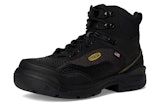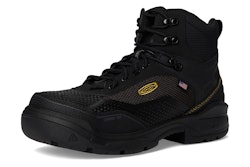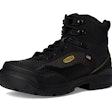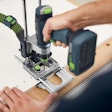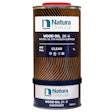So much to learn. So many people to see. And so little time. That's a predicament attendees often face when going to a trade show like next week's NWFA Wood Flooring Expo in Dallas. Confronted with a busy schedule and busy booths, attendees too often return home with no more than a confused mass of general impressions.
You can do better. The secret is to plan for success, spend time wisely and prioritize tasks. How? Read these tips from trade show experts:
Tip 1: Set Your Goals"Before arriving at the show make a plan with specific 'keeper' ideas," says Mina Bancroft, a management consultant in Palo Alto, Calif. "Then prioritize them.'"
Include specific descriptions of what you want to find at the show. Here are some possibilities: New items of merchandise. Line extensions in certain categories. Lower costs in existing lines. More reliable sources. Promotional materials. Next step: Translate your goals into an 'A' list of vendors to see.
Bonus tip: Ask yourself "What is the biggest problem I have in my business?" Write it down and take it to the show to get answers from exhibitors.
Tip 2: Strategize Your Walking PatternOnce at the show it's tempting to spend the first hours performing a walk-through. That can be a mistake.
"The last thing you want to do is shop the floor as you shop a flea market, just walking down the aisles and looking at things," says Peter LoCascio, a Salem, Ore.-based consultant. The clock moves quickly. It's easy to run out of time before you accomplish what you need to do.
Instead, use the show floor map to make sure you can see the greatest number of vendors in the least time. Schedule a certain amount of time to each vendor on your 'A' list. "You have to be disciplined and focused," says LoCascio.
Bonus tip: Avoid duplication of effort by allocating tasks among other people from your business who are attending the show.
Tip 3: Take Charge at Booths"When you go into a booth there is no reason for you to waste your time," says Bob Dallmeyer, a Los Angeles consultant. "Prepare some quick questions that pertain to your buying interests. If the booth people can't answer those questions, then you have to smartly move on."
Not all booth personnel are alike. No in-depth person at the booth? Ask for an appointment with the right person. Or, obtain the name and contact information of a person to call after the show's over. That can be a prudent step anyhow. "Exhibitors often fail to follow up trade show leads in a timely fashion for a multitude of reasons," says LoCascio. If you are serious about learning more about a product or service you may wish to obtain the name and number of the local sales person in your territory.
Bonus tip: Save time by stating "I need to make a business decision" as you enter each booth. Then state the nature of the decision and ask how the vendor's products will help.
Tip 4: Schedule Appointments WiselyRemember that 'A' list of vendors? Make sure you see them all by scheduling advance appointments, either before you leave for the show or when you arrive. "There's nothing wrong with reaching out and saying 'I would like to meet with a specialist on product x,'" says Los Angeles-based trade show consultant Howard Friedman. "Engaging before the show is completely fine. That will make your time more productive."
Such appointments are important whether you are a current or prospective customer. "If you are already a customer you will want to talk about innovations, new orders or things that are upsetting you," says Dallmeyer. "And if you are considering making a purchase you will want exclusive time in the booth."
Bonus tip: Map the show floor to identify the booth locations of your 'A' vendors. Clustering your appointments by location will reduce walking time. Tip 5: Take Notes EfficientlyHaphazard note taking can result in a confused mass of papers stashed on a shelf back home. That means you lose information critical to business success, including the names of key contacts.
Modern gadgets to the rescue. "We are seeing all kinds of new technologies to avoid the traditional business card exchange," says Doug Ducate, president of the Dallas-based Center for Exhibition Industry Research. "These include badge swiping technologies that allow exhibitors to send information efficiently."
'Old tech,' though, has its place. "Plenty of people still collect business cards and take notes on them," Friedman says. "These can be great memory joggers to help connect the dots after the show." A pack of business cards provides an easy reference for making followup calls.
Bonus tip: More attendees are entering information into iPads. Digital notes are efficient for later review, and also for passing along key insights to people who did not attend the show.
Tip 6: Pow-Wow at Quiet TimesSometimes product information is fairly simple to grasp. Other times, though, you may need to devote critical thinking time to technical details.
Solution? Schedule some 'quiet time' to make rational decisions, Bancroft suggests. "Ask the manufacturer to meet you for breakfast or lunch, where the quiet atmosphere allows you to go through the information you need to compare products."
Bonus tip: Reduce travel time by scouting out a convenient venue for business talks before you meet exhibitors. Use the Internet or locate coffee areas once you are at the show.
Tip 7: Allow for SerendipitySchedule your time, but leave some open space. One of a trade show's strengths is a potential for 'serendipity,' or the discovery of unanticipated knowledge or connections. So leave time for random encounters.
"Everyone at the show wants to discover new things and meet new people," Friedman says. "That can be a productive situation: You may meet someone who does something similar to you but who is not a competitor. It can even happen in a lunch line. So I encourage you to find the opportunity to say hello to people."
Bonus tip: Allow yourself the chance for fortuitous discovery. After you complete your important work, schedule time to visit less-promising, lower-profile booths.
Tip 8: Choose Seminars WiselyWhat seminars should you attend? Reaching a decision can be difficult. Even so, seminars are important to your bottom line. Their value is reflected in their growing presence. "People are looking to solve technical problems, and they will attend sessions that promise to do that," Ducate says.
That comment suggests a solution to the seminar conundrum: Attend those that deal with topics of immediate concern to your business. Look at each seminar listing and ask: "Will the information in this seminar help me solve a specific problem?"
Bonus tip: Reach better decisions by calling seminar leaders before the show for more details about a prospective presentation.
Tip 9: Share the WealthBeing productive at trade shows is a learned skill. Pass along the talent to the next generation. "It's good for a senior level person to bring along a junior one," says Friedman. "The senior person can make introductions and put products in the context of business initiatives. Relationships established at trade shows can be very helpful in the future."
Sharing such knowledge can lay a foundation for the continuing profitability of your business. And it will help foster a habit of efficient trade show buying. "Time is money today," says Dallmeyer. "You need to maximize what you do at every trade show."









